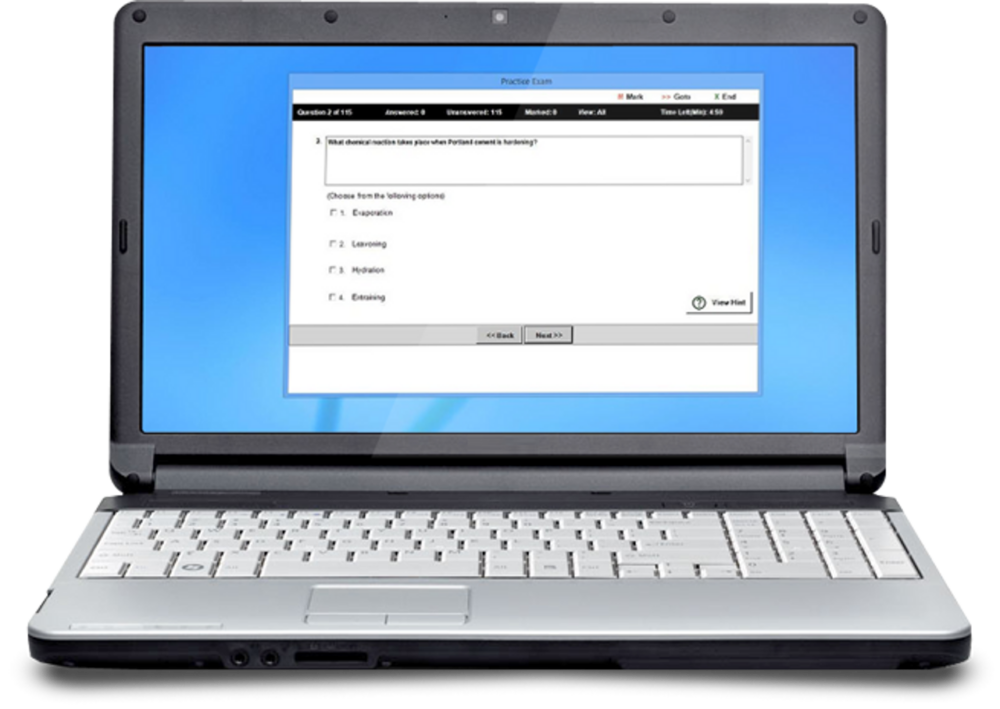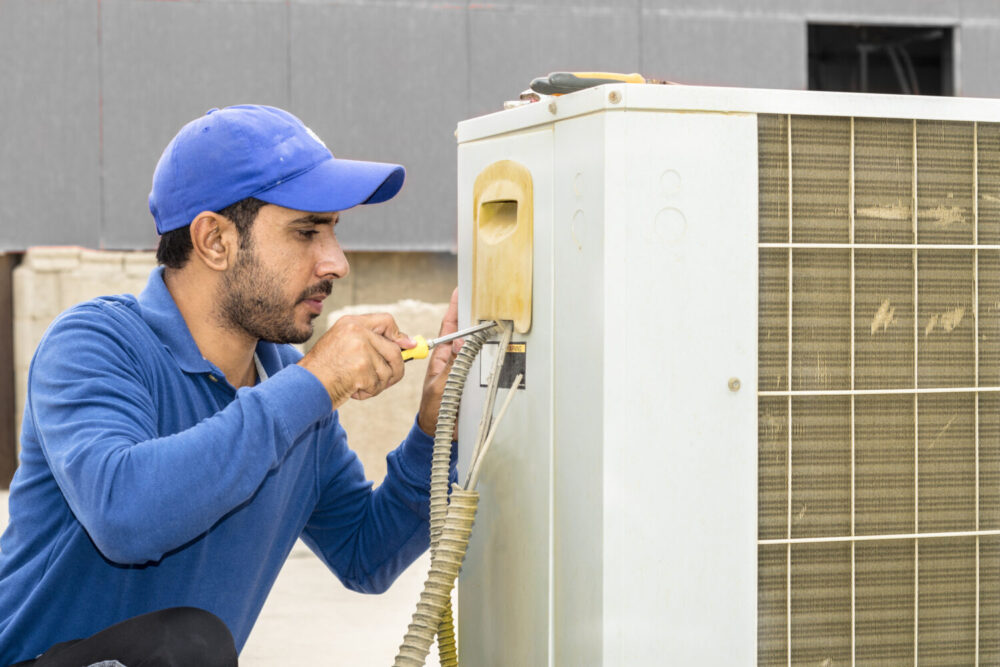In the journey of professional growth, there are paths laden with challenges and opportunities, each step forward a testament to perseverance and dedication. This is a story of such a journey, one taken by aspiring HVAC professionals in Texas, a tale woven with the threads of ambition and the pursuit of mastery.
Like a craftsman honing their skill, these individuals embark on a quest not just for certification but for excellence. The path to obtaining a Texas HVAC license is more than a mere academic endeavor; it is a journey of transformation, where knowledge and skill merge to forge experts in heating, ventilation, and air conditioning.
As we explore the landscape of this journey, we uncover the tools and resources that light the way – study guides that lay the foundation of knowledge, practice exams that challenge and refine understanding, and online courses that bring learning to life. Each element plays a pivotal role in sculpting the artisans of comfort and safety in our homes and workplaces.
This prelude is an ode to the journey of the HVAC professionals in Texas. It’s a celebration of their commitment to learning and their resolve to excel. As we delve into their world, we witness not just the acquisition of a license, but the birth of expertise and the flourishing of professional careers.
Let us embark on this enlightening journey together, exploring each step towards achieving the coveted Texas HVAC certification, and revel in the triumphs and trials that shape the experts of tomorrow.
Acquiring a Texas HVAC certification is an essential endeavor for individuals working in the field of heating, ventilation, and air conditioning. Mastery of the subject matter and meticulous preparation are vital to successfully completing the HVAC licensure examination.
Fortunately, there exists a plethora of resources that can aid candidates in their diligent exam preparations. Armed with these invaluable tools, HVAC professionals can triumphantly overcome the challenges posed by the rigorous test by taking the Texas HVAC license prep courses.
HVAC Exam Study Guides

Source: engineeringdesignresources.com
Comprehensive Content Coverage
Study guides are an excellent starting point for HVAC professionals preparing for the Texas license exam. These guides typically provide a comprehensive overview of the exam content, including relevant theories, principles, codes, and regulations.
They cover topics such as air conditioning and refrigeration systems, ventilation, heating systems, electrical components, and safety procedures. By following a structured study guide, candidates can ensure they are familiar with all the required knowledge areas.
Practice Questions and Explanations
Many study guides also include practice questions and detailed explanations. These practice questions allow candidates to evaluate their understanding of the material and identify areas that require additional focus.
The detailed explanations help reinforce knowledge and provide clarification on any misconceptions. By regularly practicing with these questions, candidates can develop their problem-solving skills and improve their chances of success on the actual exam.
Practice HVAC License Exams

Source: mycontractorslicense.com
Simulating the Exam Experience
Practice exams are invaluable tools for preparing for the Texas HVAC license exam. These exams mimic the format, structure, and difficulty level of the actual exam. By taking practice exams, candidates can familiarize themselves with the time constraints, question types, and overall exam environment. This helps reduce anxiety and increases confidence on the day of the exam.
Identifying Knowledge Gaps
Practice exams also serve as excellent diagnostic tools, highlighting areas where candidates may be lacking knowledge or understanding. By reviewing the results of practice exams, candidates can identify their weak areas and allocate additional study time accordingly. This targeted approach ensures that candidates focus their efforts on the areas that require the most attention, maximizing their study efficiency.
Online Courses and Training

Source: thenewsavvy.com
Interactive Learning Platforms
Online courses and training programs offer interactive learning experiences that can significantly aid in HVAC license exam preparation. These courses often include video lectures, slides, quizzes, and assignments that cater to different learning styles. Candidates can access these resources at their convenience and pace, allowing for flexible learning.
Expert Guidance and Support
One of the significant advantages of online courses is access to expert guidance and support. Instructors or mentors with deep knowledge and experience in the HVAC industry can provide valuable insights, clarify difficult concepts, and address any questions or concerns. This personalized support ensures that candidates receive the guidance they need to succeed in the exam.
Continuing Education Credits
In addition to exam preparation, online courses may offer continuing education credits (CEUs) required for maintaining an HVAC license. This dual benefit allows candidates to fulfill their educational requirements while enhancing their knowledge and exam readiness.
Industry Publications and Resources

Source: astaspice.org
HVAC Codes and Regulations
Studying industry publications, such as HVAC codes and regulations, is essential for success on the Texas HVAC license exam. These publications provide crucial information on installation, maintenance, and safety standards. By familiarizing themselves with these codes and regulations, candidates can demonstrate their understanding of industry best practices and compliance requirements during the exam.
Manufacturer’s Manuals and Technical Literature
Manufacturer’s manuals and technical literature are other valuable resources for HVAC professionals preparing for the exam. These documents provide in-depth information about specific equipment, troubleshooting techniques, and installation procedures. By studying these materials, candidates can strengthen their understanding of HVAC systems and components, equipping them for success on the exam.
Networking Opportunities
Networking in the HVAC industry is a valuable resource for aspiring technicians in Texas. Building connections with experienced professionals opens doors to insights, advice, and potential job opportunities. Seasoned HVAC technicians offer practical knowledge and mentorship, aiding in studies and exam preparation.
Networking can also uncover hidden job openings and lead to recommendations. Staying connected helps professionals stay updated on industry trends, ensuring they remain competitive. Additionally, networking provides a support system for peers who understand the industry’s challenges. In summary, networking isn’t just about making contacts; it’s about cultivating relationships that can significantly impact one’s journey toward becoming a licensed HVAC technician in Texas.
Conclusion
To excel in the Texas HVAC license exam, HVAC professionals need to leverage the available tools and resources. Study guides expose candidates to comprehensive content coverage and practice questions. Practice exams simulate the exam experience and help identify knowledge gaps. Online courses offer interactive learning platforms, expert guidance, and support while also fulfilling continuing education requirements.
Industry publications and resources provide up-to-date codes, regulations, and technical information. By utilizing these tools collectively or selectively, HVAC professionals can prepare effectively, ensuring a higher likelihood of success on the Texas HVAC license exam and advancing their careers in the industry.












